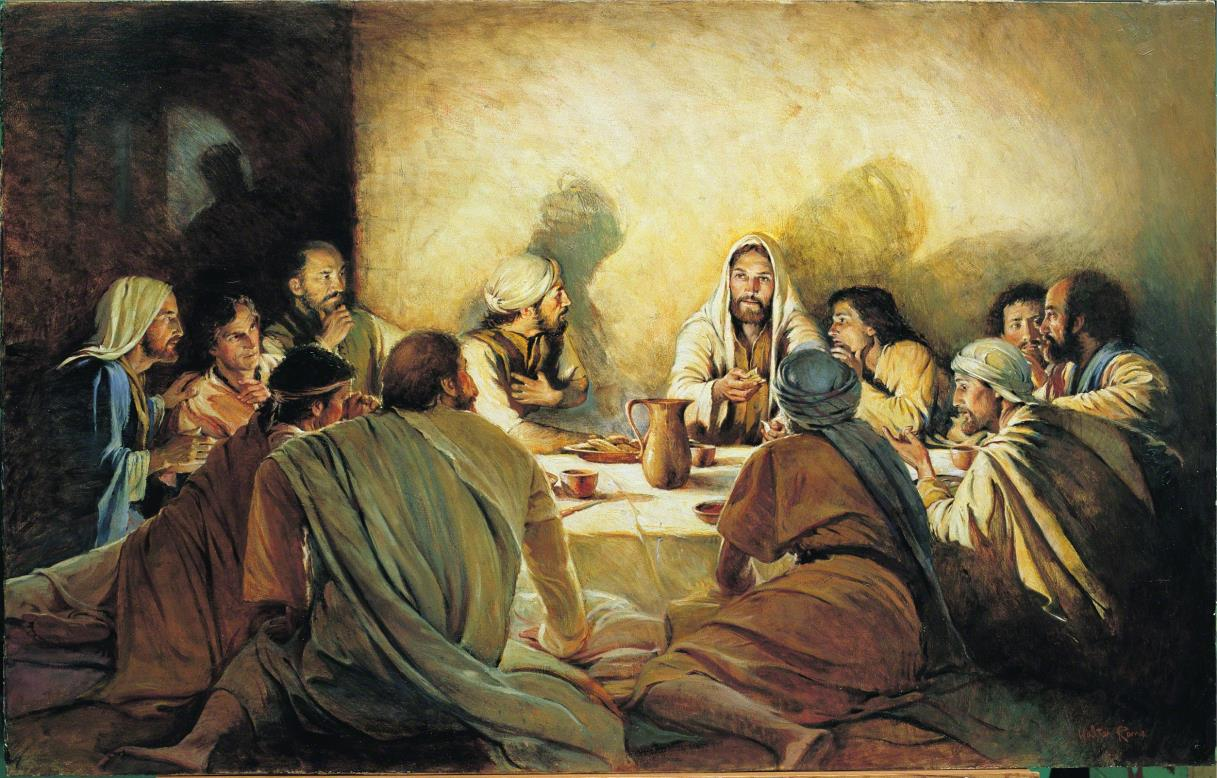Holy Supper
How can we approach the holy supper worthily?
Blessed are they who hunger and thirst after justice, for they shall be filled (Matthew 5:6).
Is not the holy supper a sacrament of repentance, and thus introduction into heaven? Are not communicants told by all means to repent before coming to it? (TCR 567:8)
In order that everyone in the work of repentance might look to the Lord alone, He instituted the Holy Supper, which confirms the remission of sins with those who repent. It does so because in that Supper or Communion, the attention of everyone is directed to the Lord alone (DP 122:e).
Actual repentance is to examine oneself, to know and acknowledge his sins, to hold himself guilty, to confess them before the Lord, to implore help and the power to resist them, and thus to desist from them, and lead a new life, doing all these things as of yourselves. Do this once or twice a year, when you approach the Holy Communion; and afterwards when the sins of which you have found yourselves guilty recur, then say to yourselves, “We will not consent to them because they are sins against God.” This is actual repentance (AR 531:5).
The Lord is present and opens heaven to those who approach the Holy Supper worthily, and is also present with those who approach unworthily, but to them He does not open heaven. Consequently, as baptism is introduction into the church, so the Holy Supper is introduction into heaven…. With both the worthy and the unworthy the Lord is present, because He is omnipresent both in heaven and in hell, and also in the world, consequently with the evil as well as with the good. But with the good, that is, with the regenerate, He is present both universally and individually; for the Lord is in them and they are in Him, and where He is, there is heaven. Moreover, heaven constitutes the Lord’s body; consequently, to be in His body is also to be in heaven… (TCR 719:1).
With those who only understand what is true and good, the Lord’s presence is universal or external, while with those who also will and do what is true and good, the Lord’s presence is both universal and individual, or both internal and external. Those who merely understand and talk about what is true and good are like the foolish virgins who had lamps but no oil; while those who not only understand and talk about what is true and good, but also will and do it, are the wise virgins who were admitted to the wedding, while the former stood at the door and knocked, but were not admitted (Matt. 25:1–12). From all this it can be seen that the Lord is present and opens heaven to those who come to the Holy Supper worthily; and that He is also present with those who come to it unworthily, but to them He does not open heaven (TCR 719:3).
Nevertheless, it is not to be supposed that the Lord closes heaven to those who come unworthily. This He does to no man, even to the end of his life in the world; but man closes heaven to himself, and he does this by the rejection of faith and by evil of life (TCR 720).
Those come to the Holy Supper worthily who have faith in the Lord and charity toward the neighbor, that is who are regenerate…. That God must be acknowledged in order that one may have religion, or that anything of the church may be in him, is declared by reason itself when there is anything spiritual in it; consequently, if one comes to the holy supper without acknowledging God, he profanes it…. After the acknowledgment of God, charity is the second means which enables one to come to the holy supper worthily…. Faith in the Lord is the third means of worthily enjoying the Holy Supper, because charity and faith make one, like heat and light in spring, from which two conjoined every tree is born anew; so from spiritual heat, which is charity, and from spiritual light, which is the truth of faith, every man has life (TCR 722).
If at recurring seasons there is actual repentance, as often, for instance, as a man prepares for the communion of the holy supper, and if he afterward abstains from one or another sin which he then discovers in himself, this is sufficient to initiate him into the actuality [of repentance], and when he is in that he is on the way to heaven, for he then from being natural begins to be spiritual, and to be born anew from the Lord (TCR 530).
Questions
- Should we feel that we must be confirmed before taking the Holy Supper?
- If you find yourself in the service and unprepared, should you participate? Should you turn down “the Lord’s invitation”?
- “It is known that they who eat the bread in the Holy Supper unworthily, do not appropriate good to themselves, but evil” (AC 4745). “The Lord does not require any more of the man of the church than to live according to what he knows” (AC 6706). In what sense are we able to approach worthily? Can we really tell?
- Unworthiness is especially hypocrisy and insincerity, as if an avowed atheist or a confirmed adulterer or thief should come to holy supper. What is the path to becoming more “worthy”?
| previous |  |
next |
|---|


